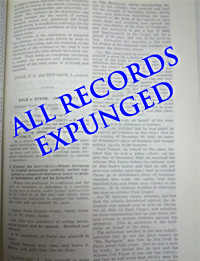What is the difference between an expungement and sealing a record?
Expungement or Sealing a Record in Pennsylvania
In Pennsylvania, the expungement of a record means that the record is destroyed and removed from government databases. With sealing, technically called an Order for Limited Access in Pennsylvania, the record still exists but it is not publicly accessible. If a record is expunged, then no record should exist, and people cannot see or find a record that does not exist. With a sealed record, the public cannot see the record, meaning such records should not appear on criminal background searches. However, the police, prosecutors, and judge can generally see and consider such a sealed record when determining how to resolve a pending case.
It must be noted that there are some limited situations in which a person must report or disclose expunged or sealed charges on applications. For example, a person with an expunged or sealed conviction may still need to report the prior convictions on security clearances with the Federal government, on applications to purchase guns, ARD applications, and Visa and immigration applications. Before completing such applications, a person should consult with an experienced lawyer to determine whether or not reporting the priors is required, and, if so, how to report those offenses. 
Why is an expungement better than the sealing of a record?
Obviously, having no record is better than having a sealed record. A person with a criminal record should check to see if they are eligible to expunge instead of seeking an order for limited access. If the person is not eligible to expunge, obtaining an order for limited access and sealing the record is better than having the record appear when employers run background checks.
Hypothetical situation – presume that a person was convicted of a summary offense of Retail Theft, stayed out of trouble for 5 years, and was able to expunge the summary conviction. If the conviction were expunged, no record of the prior would exist, so the person may be eligible to participate in a diversionary program to avoid a conviction and obtain an expungement. Order, even if not eligible for a diversionary program, the person may obtain a better resolution because the prior conviction would not be considered and used against the person. If the person had only obtained an order for limited access to seal the record, then a police officer, prosecutor, or judge would be able to see and consider the prior conviction. Obviously, if a prosecutor or judge sees that the person was in trouble before, the past will be used against the person.
If you have questions about expungement or limited access eligibility, contact an experienced defense attorney at JD Law to review your prior conviction history and discuss your legal options. Call the State College criminal defense firm at (814) 965-7622 or via email.
